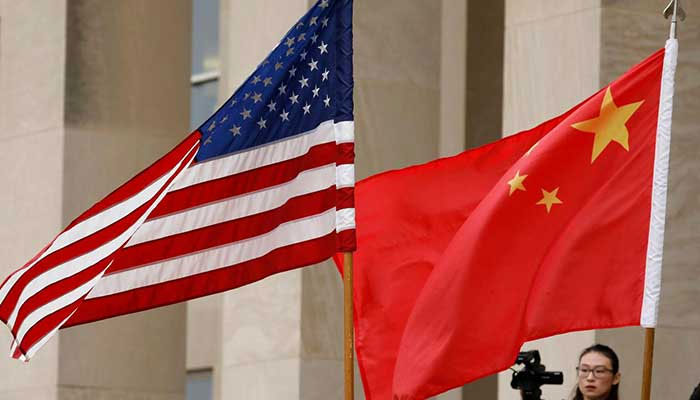American and Chinese soft power
In post-cold war era, the concept of "soft power" gained much prominence among foreign policy discussions
January 02, 2023

Power in international terms has traditionally been defined in "hard" terms in the context of military and economic strength. In the post-cold war era, the concept of "soft power" gained much prominence among foreign policy discussions, and the US was considered the bastion of soft power.
China joined much later and enthusiastically promoted its soft power image in world politics. As the contest between the US and China intensifies, some academics like Maria Repnikova, the author of "Chinese Soft Power", predict another dimension of competition, with Washington and Beijing vying to make their political and economic models more attractive to the rest of the world through soft power.
The term was coined by American political scientist Joseph Nye in his book "Bound to Lead" in which he defined soft power as “getting others to want what you want”. He set out three primary pillars of soft power: political values, culture and foreign policy. Unlike hard power which rests on the ability to coerce and use of force that grows out of the country’s military and economic power, soft power is the ability of a country to persuade others by shaping their preferences, without force or coercion, by making its political values, culture and foreign policy goals attractive.
The American concept of soft power, ideologically, propagates itself as the chief defender of the liberal democratic order. The Obama and Trump administrations echoed these sentiments in varying degrees. The Biden Administration captured the essence of this view in US President Joe Biden’s inaugural address where he said, “We will lead not merely by the example of our power but by the power of our example.” In December 2021, Biden hosted the virtual "Summit for Democracy" with the aim of building democratic alliances against authoritarian powers.
American soft power is also shaped by the private sector’s cultural exports — from Hollywood films to Michael Jackson, Google to Harvard, Coca Cola to McDonalds. During the cold war era, the US State Department sponsored writers and publications and promoted American jazz musicians and artists to act as cultural ambassadors. So alongside military and economic strength, Nye argued, the US enjoyed massive advantage over potential rivals due to its abundant soft power which rested on “intangible resources: ideology, culture [and] the ability to use international institutions to determine the framework of debate.”
The idea of American soft power that enabled the US to sustain its hegemony slowly became popular and enticing for many regions. The country which embraced it most ardently is China that has emphasised its cultural confidence, reinforced economic development and extended generous material endowments to win the hearts of other countries. China has operationalised the idea of soft power in a distinct way, seeking to blend its cultural and commercial appeal.
Cultural and language centres known as Confucius Institutes have been established in 162 countries; soft power is bolstered through education and state-sponsored training programmes for countries in the Global South. Chinese universities with their low tuition fees and availability of scholarships are popular destinations for many students in the Global South as graduates also get a chance to apply to various Chinese companies for employment opportunities.
Chinese soft power tends to be visible through its model of economic development, technological advances, political mobilisation against poverty and corruption, and grandiose infrastructure and development projects such as railways, bridges, highways and ports in Central Asia, Africa and Asia, Latin America as part of the Belt and Road Initiative.
In the US, cynicism about its eroding democratic values, selective commitment to human rights, pervasive racial discrimination and attacks on reproductive rights at home could harm its soft image. Also, failure to galvanize much of the Global South in confrontation with Russia reflects ample mistrust.
Chinese soft power has had little impact in the US and other Western industrialised democracies owing to the preexisting scepticism of communism and authoritarianism. However, China’s increasingly assertive foreign policy under Xi using antagonistic rhetoric with the US and military intimidation in the South China Sea could dim its reputation. In the wake of pandemic isolation and slowing economy, which has hindered people-to-people exchanges dramatically, it remains to be seen how much an effort China has to make in doling out large chunks of material endowments to retain its soft image in the world.
Although it looks that Washington and Beijing are engaged in a soft-power competition, the reality seems like "soft-power coexistence", says Maria Repnikova. Their success depends not on outmanoeuvring each other, like the technology competition, but on refining their appeal and attractiveness to others. The world is not interested in any particular American or Chinese model. Instead, they are happy, according to Repnikova, to have both models trying to win them with their respective visions and appeals. “What Washington and Beijing see as zero-sum, much of the world often sees as win-win,” Repnikove concludes.
The writer holds an LLM degree ininternational economic law from the University of Warwick. She can be reached at: [email protected]











